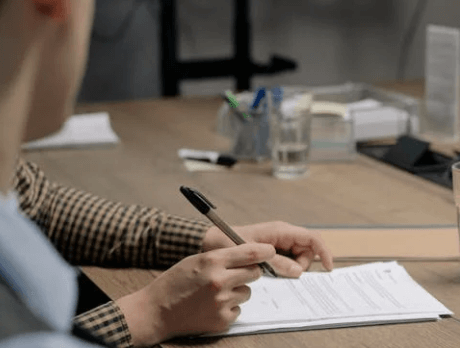Are you looking to get the deed to your land in Florida? Whether you’re a land seller, property seller, real estate investor, or a Florida resident, understanding the deed acquisition process is crucial. In this guide, we will walk you through everything you need to know to get the deed to your land in Florida. From understanding the basics to navigating through legal procedures, this guide has got you covered. By the end, you’ll be empowered with all the knowledge required to secure your property rights confidently.
Experienced real estate investors like Steve Daria and Joleigh emphasize the importance of thorough research and due diligence in navigating the complexities of land acquisition. Their insights highlight that understanding local regulations and engaging with knowledgeable professionals can significantly streamline deed acquisition. By following their strategies, aspiring landowners can confidently approach their purchase, ensuring a smoother transition into property ownership.
What is a Land Deed?
A land deed is a formal legal document used to transfer ownership of real estate from one party to another, serving as a critical component of property transactions.
It includes important details such as the names of the current owner (grantor) and the new owner (grantee), ensuring that both parties are clearly identified.

The deed also provides a precise legal description of the property, which includes boundaries and specific identifiers to avoid any ambiguity about the land being transferred.
Additionally, the deed must be signed by the party transferring the property, and in many cases, it must be notarized to validate the transaction.
Here are the types of land deeds:
- Warranty Deed: Gives the highest layer of protection, guaranteeing that the property is free of any encumbrances.
- Quitclaim Deed: Moves whatever interest the seller has in the property without guarantees.
- Special Warranty Deed: Offers a middle ground, providing some but not all protections.
Importance of Having a Land Deed
Having a land deed is crucial for several reasons.
It serves as evidence of your ownership, ensuring your legal rights are protected.
Without a deed, you may face disputes or challenges concerning your property ownership.
- Legal Protection: A deed protects you legally by clearly defining property boundaries and ownership.
- Financial Transactions: Essential for selling or mortgaging your property.
- Tax Purposes: Needed for accurate property tax assessments.
Get Started: Get Your Cash Offer Below…
We are direct land buyers. There are no commissions or fees and no obligation whatsoever. Start below by sharing where your property is and where we can send your offer…
Steps to Get the Deed to Your Land in Florida
Here’s how you can get the deed to your land in Florida:
Step 1: Verify Property Ownership
Before you can get the deed to your land, confirm that the property in question is indeed yours.
This involves checking public records at the county recorder’s office.
Gather necessary information:
- Property address
- Owner’s name
- Parcel number
Step 2: Conduct a Title Search
A title search is vital to uncover any existing liens, encumbrances, or disputes over the property.
You can get a title company or a real estate attorney to perform this search.
What to look for:
- Existing mortgages
- Liens or judgments
- Easements
Step 3: Prepare the Deed
Once the title is clear, the next step is preparing the deed.
This can be done by yourself or with the help of a real estate attorney to ensure accuracy.
Key components:
- Grantor and Grantee information
- Legal description of the property
- Signatures
Step 4: Get the Deed Notarized
In Florida, deeds must be notarized to be legally binding.
This step ensures that all parties involved willingly sign the document.
Where to get notarized:
- Local banks
- Courthouse
- Private notaries
Step 5: Record the Deed
Recording the deed is the final step to officially get the deed to your land in Florida.
After notarization, the deed must be documented at the county recorder’s office where the house or land is located.
This step makes the transfer a public record.
Documents needed:
- Original notarized deed
- Recording fees
Common Mistakes to Avoid
Acquiring a land deed involves several intricate steps, and making errors can lead to delays or legal issues.
Here are some common pitfalls to steer clear of:
- Skipping the Title Search: Overlooking this step might leave you unaware of existing liens or disputes.
- Incorrect Information: Ensure all names and property descriptions are accurate to avoid invalidating the deed.
- Ignoring Notarization: Unnotarized deeds are not legally binding.

Benefits of Professional Help
While it is possible to handle the deed acquisition process yourself, there are significant advantages to seeking professional assistance.
- Legal Expertise: Lawyers can provide invaluable advice and ensure all documents are correctly prepared.
- Time-Saving: Professional services can expedite the process, saving you time and effort.
- Peace of Mind: Knowing experts are handling your transaction can reduce stress and potential errors.
Frequently Asked Questions
Explore the most common queries on how to get the deed to your land in Florida.
What is the cost of acquiring a land deed in Florida?
The cost may vary based on various factors, such as legal fees, title search charges, and recording expenses.
On average, anticipate to spend between $300 and $500.
How long does it take to get the deed recorded?
Typically, it takes about 14-21 days for the county recorder’s office to process and record the deed.
Can I transfer a land deed myself?
Yes, you can transfer a land deed yourself, but it is more advisable to seek legal advice to ensure the process is handled properly.
Preparing and filing the necessary documents requires attention to detail, including accurately completing the deed form and providing a precise legal description of the property.
Mistakes or omissions in these documents can prompt legal disputes or complications in the transfer of ownership.
Conclusion
Getting the deed to your land in Florida is a critical step in getting your property rights. By following the steps outlined in this guide—verifying ownership, conducting a title search, preparing the deed, getting it notarized, and recording it—you can ensure a smooth and efficient process.
**NOTICE: Please note that the content presented in this post is intended solely for informational and educational purposes. It should not be construed as legal or financial advice or relied upon as a replacement for consultation with a qualified attorney or CPA. For specific guidance on legal or financial matters, readers are encouraged to seek professional assistance from an attorney, CPA, or other appropriate professional regarding the subject matter.
